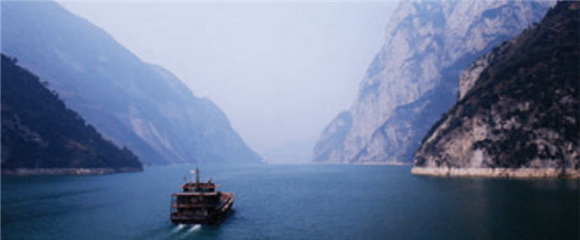Ending wildlife trafficking must be policy priority in Asia
It is encouraging to see China taking decisive steps to respond to the challenges associated with wildlife crime, including President Xi Jinping's recent decision to halt the domestic trade in ivory and the introduction of legislation that makes the intentional consumption of endangered species a criminal offence. And the coming revision of China's wildlife protection law is an important opportunity to ensure that concrete measures are taken to protect endangered species.
Recently, the United Nations General Assembly called on countries to declare the illegal wildlife trade a serious criminal offence. Discussions that followed at the second United Nations Environment Assembly in Kenya reaffirmed the urgency of stepping up efforts to combat wildlife crime through concrete actions at the national level while expanding international cooperation. There are also signs that leaders in this region have started to recognize the significance of the problem-the last Association of Southeast Asian Nations Ministerial Meeting on Transnational Crime added trafficking in wildlife and timber to the list of priority transnational crimes for the region to address. Given the size of the market for wildlife across Asia, it is important that political statements and commitments in the region are followed up with concrete actions.
Addressing the illegal trade in wildlife will require collective coordinated action, working across source, transit and destination countries, in the most strategic hotspots across the supply chain. It is important to shift the focus of the criminal justice response from couriers and poachers to trade controllers and corrupt facilitators. Legal loopholes need to be closed and laws and penalties made tougher in conjunction with anti-corruption provisions. In addition, it is hoped that greater public awareness will bring pressure to bear on governments to enforce laws.
The United Nations is calling on everyone to stop wildlife trafficking. Everyone has a role to play from lawmakers, community leaders, police and customs officers, prosecutors and judges, to businesses and average citizens. We urge you to join us in calling for zero tolerance. Wildlife trafficking must be stopped.
Isabelle Louis is acting regional director of the United Nations Environment Programme Regional Office for Asia and the Pacific. Jeremy Douglas is the United Nations Office on Drugs and Crime regional representative for Southeast Asia and the Pacific.
-
State wildlife officials remove tigers from Buddhist temple
- Wildlife population expands around Mount Qomolangma
- Ivory burning won't increase price: Kenya wildlife chief
- Wildlife getting better treatment in Jilin






















